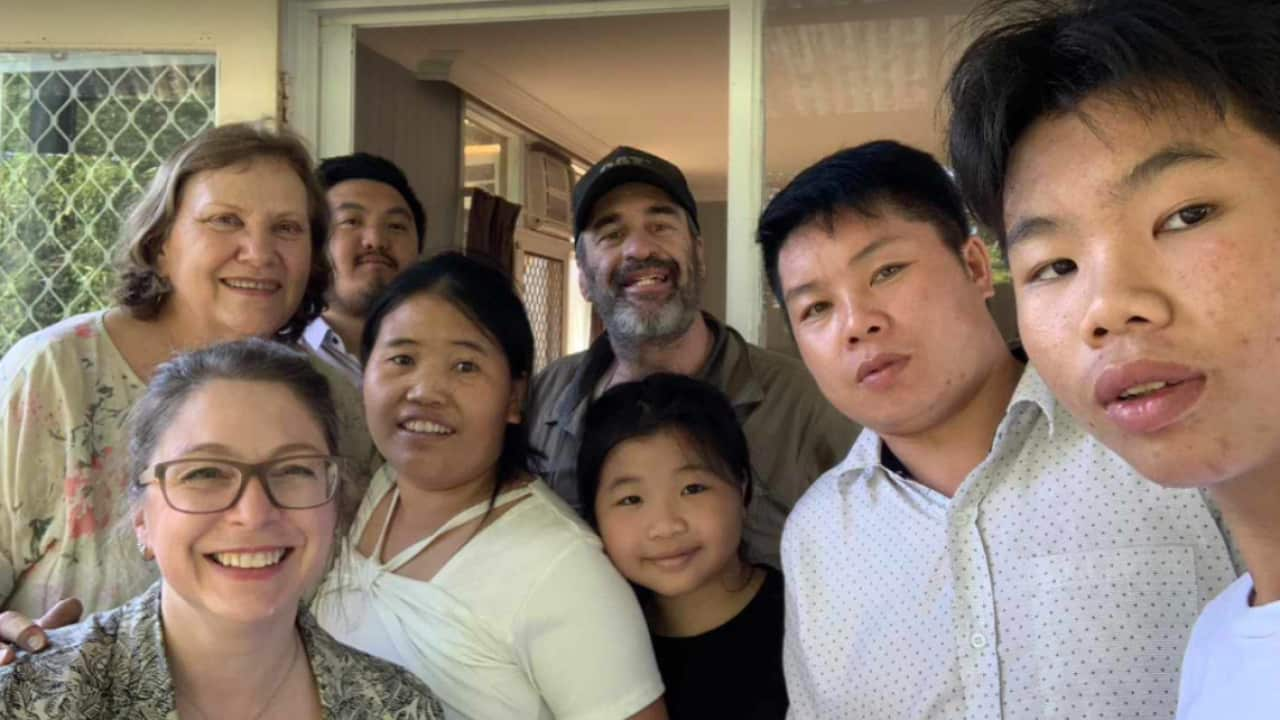Seng Alex Vang who is a lecturer at the University of California, Merced and also the managing editor at Hmong American Experience says that when we talk about how to protect Hmong traditional textile or attires (To be registered as a patent), it is still a long process as we couldn't draw a conclusion. Therefore, not much can be done about it.
Vang asserts further that Hmong clothing was also commercialized in China and recent Hmong women in Hmong traditional clothing taken by a foreigner without permission from them has also won hundred thousand prize money without mentioning anything about them or acknowledging anything.
However, since the Hmong community outcry about Eponine London fashion brand, it has changed its designs from Tribal to Hmong clothes.
Seng Alex Vang told SBS Radio Hmong Program that 'We should protect what belongs to us." He also stated in Hmong American Experience post in 2018 that "Hmong clothes is not a tribal as Eponine London labeled, to call it "tribal'' is an act to own and erase a people of it's history and art that is culturally significant".
Dr. Lee Pao Xiong, director of the Centre for Hmong Studies at Concordia Univesity also says that " At first I was happy that Hmong culture was presented at the international stage but they did not acknowledge as Hmong outfit."
Xiong also says that "Hmong attires has thousand years of hidden history. We used to fight with Chinese past rulers and we lost, so our elders sew our alphabets and geographic significance into Hmong clothing," according to MPR New reports.
More importantly, Lao Oma ethnic motifs have become that latest victim in this regards, when Italian fashion brand Max Mara copy their motifs and printed them on their outfits, selling for hundreds without any reference or acknowledgment of Oma people at all.
International and Lao local media reported that the Traditional Arts and Ethnology Centre which is representing Oma community and "wants answers'', but so far no reply made yet by the brand. It wants the Italian fashion brand to recognize the original artisan's rights and properly compensate them. It wants the brand to stop duplicating others designs, take these copied designs out of its shelf and online stores and do a hundred percent donation with whatever profits it made to organizations that advocate intellectual property and rights of ethnic minorities."
Along with these incidents, the 6th Fashion Ethical Report was also released by the Baptist World Aid Australia who does a study with more than 130 clothing companies and over 480 brands.
The report says there is still big room for improvement, as only 38% of these companies are taking more actions toward looking after workers rights, their health and well being, exploitation in different forms (forced labor, forced marriage, threats, abuse, violence) or child labor and their living wage as well as leaning toward environment friendly industries. But there are only 5% of these companies who are looking at the living wage for garment workers at the final stage of making their products.
According to Global Index on slavery 2018, top five western countries i.e US, Japan, Germany, France, Canada, and South Korea imported most of the five of the most at risk goods. North Korea came top with 2.3 million in modern slavery and Eritrea came second, while fashion supply chains are one of the most problematic fields who exploited others. Its 2017 index also showed 66% of modern slavery are in the Asia - Pacific regions where over 30 million were exploited and enslaved, which their labors have helped fashion industries generated over $100 billion.
The Baptist World Aid Australia's Chief Executive Officer John Hickey says that it requires all stakeholders to work together especially consumers, businesses, and governments.
Consumers, says Hickey, need to shop more ethically and more actions from fashion industries need to be taken to change their practices as Australia's Modern Slavery Act 2018 (Cth) became active since January 2019, to make sure that companies with turn over with $100 million revenue and $50 million in New South Wales have to comply with this legislation or face harsh penalty.





